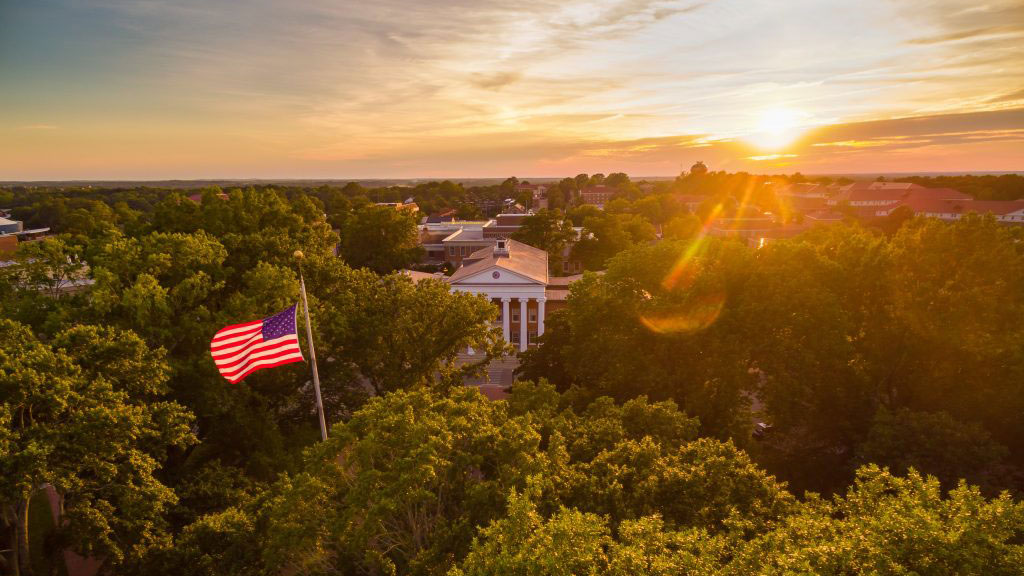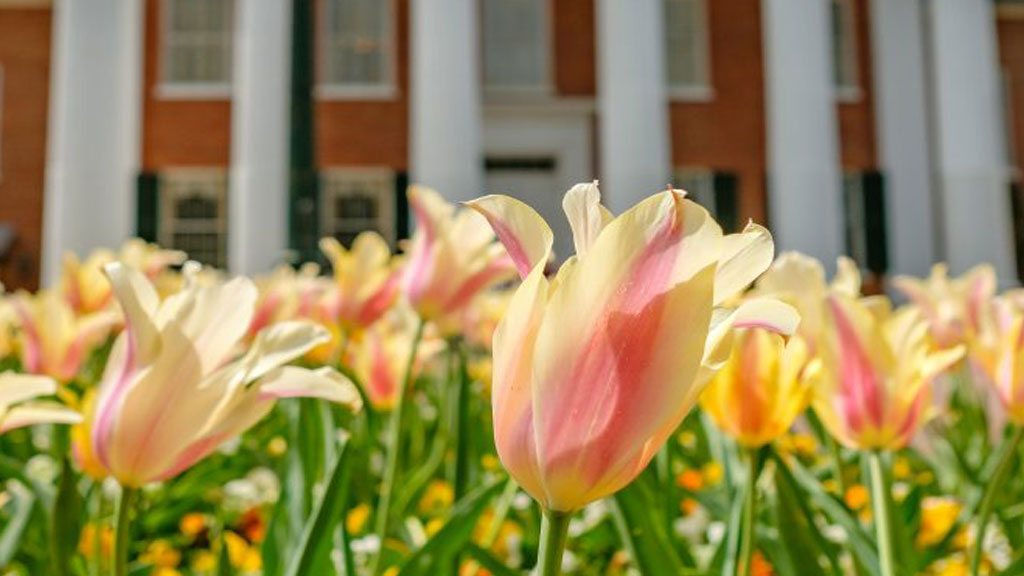Lifetime of community involvement prepares Curtis Hills to take efforts to the national stage
University of Mississippi senior English major and professional writing minor Curtis Hills has been involved in community service and community organizing since middle school, and as a University of Mississippi student, he embodied that passion for community development and betterment on campus.
“Curtis cares deeply about Mississippi and the world, and he pursues learning with a purpose,” said Stephen Monroe, chair and assistant professor in the Department of Writing and Rhetoric. “He wants to make our world a better place, and he is using his University of Mississippi experience to prepare himself for a purposeful life.
“As his teacher, I admire and respect Curtis Hills, and I’m very proud of his accomplishments, including his imminent graduation and the prestigious Emerson Fellowship.”
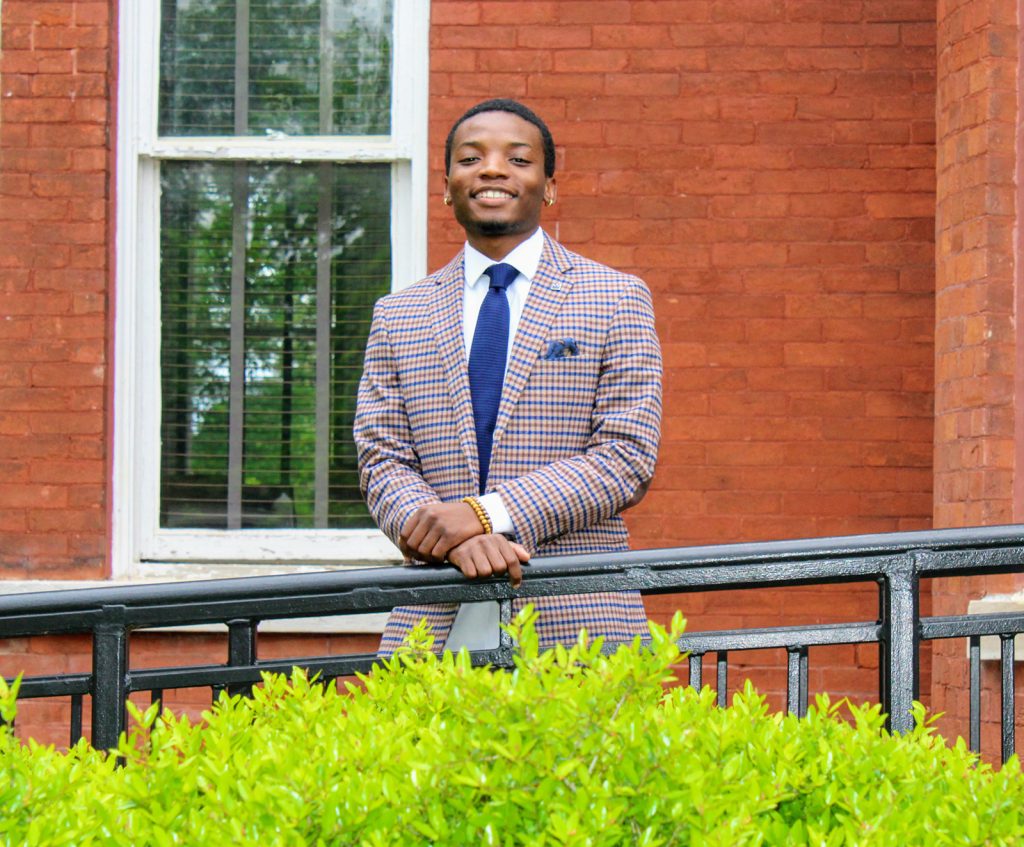
As a kid, Hills loved spending time with his grandfather on his farm in Holmes County. But he hated picking peas and digging potatoes.
As he studied the civil rights movement and community service, he realized how essential land and food were to the struggle for equality and how important his childhood experiences on the farm were.
“Curtis has an abiding relationship to community development work in his own community,” said Patrick Alexander, associate professor of English and African American studies. “But he also understands that social problems, when unresolved, have a lasting negative impact on our communities.”
As Hills graduates from the university, he is going on to serve the nation as an Emerson National Hunger Fellow and leaving a legacy of thoughtfulness, service and social justice in his wake.
But his journey to this prestigious award wasn’t always an easy one.
A Difficult Road
Throughout high school, Hills worked on community outreach programs at the Nollie Jenkins Family Center in Holmes County, doing everything from helping to develop young leaders and organizing reading programs for younger students to getting corporal punishment removed from Holmes County schools and promoting restorative justice.
But as Hills worked to make his community better, his mom became ill. By the time he returned from a trip to France the summer after his senior year, she was spending all her time in the hospital.
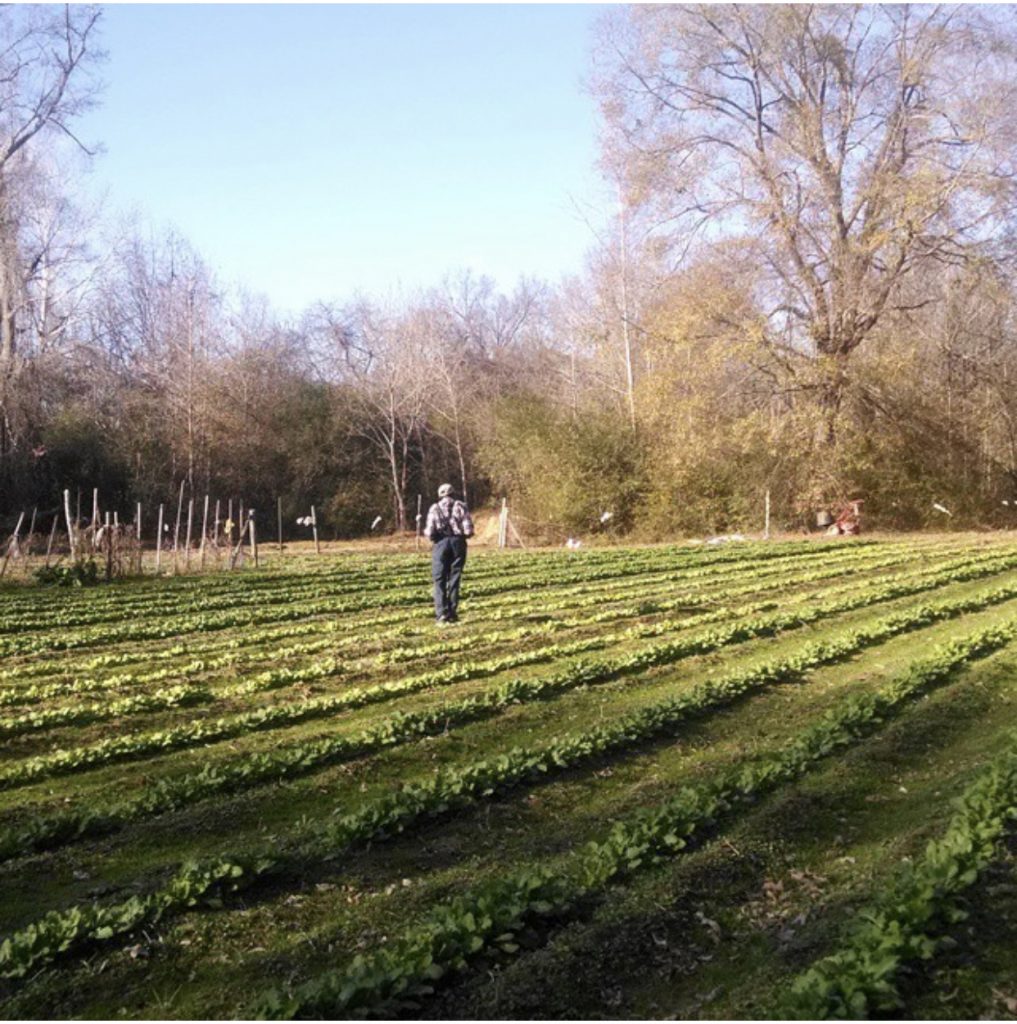
“I remember hospice calling and saying to get my family together because my mom may only have a few more days,” Hills said. “That was the week before I was supposed to start school. She died at, like, 10:30 on Sunday night before classes started my freshman year, and at midnight I sent out emails to my professors to let them know what happened.”
Hills instantly changed from an incoming freshman to the key decision-maker in his family.
“He had to plan a funeral and figure out how to take care of his sister,” said Ellen Reddy, executive director of the Nollie Jenkins Family Center, mentor of Hills and his self-proclaimed biggest fan. “We still had to get him packed and up to the University of Mississippi.
“Imagine going to school a week after your mother died.”
Hills said the community rallied around him and his family, and that moment in his life galvanized the calling he felt to community service.
“I’ve always been compassionate,” he said. “I think that only heightened when my mom passed because I wanted to do more for the community I grew up in and the people I grew up around.”
Looking Back to Move Forward
After graduation, Hills is going to put his experience as a community organizer and advocate to use as an Emerson National Hunger Fellow.
As part of a team of fellows, Hills will spend the next year researching hunger and poverty by working with community-based organizations across the country, as well as policy-focused groups in Washington, D.C., in an effort to join local efforts and national policy.
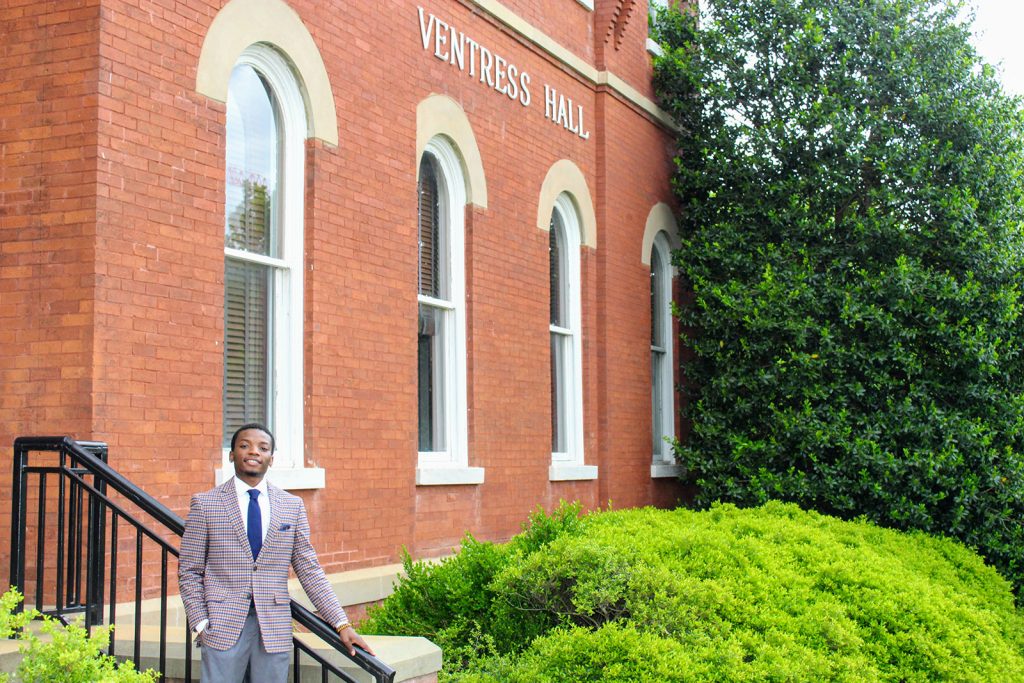
“I applied for this fellowship because I know what it means to grow up poor and not have access to resources,” Hills said. “At the same time, as I reflect on my experiences with a nonprofit advocacy organization, I also understand what it means to have resources.
“I know what it means to have an education that focuses on the development of critical thinking skills and strategic analysis, in order to create the foundation for independent thinkers.”
When Hills interviewed for the Emerson National Hunger Fellowship, he was asked to bring an object that helped tell his story. He chose an image of the sankofa bird that he keeps on hand to remind him to learn from his past and the past of his culture as he moves forward.
The image, often used in art from Ghana as well as in African American communities, shows a bird with its feet pointed forward, but its head turned backward to retrieve an egg.
The sankofa bird represents the lessons Hills learned as a community organizer in his hometown and the experience of his community rallying around him in times of need. It represents his grandfather’s farm and the lessons he learned about agriculture. It represents the civil rights struggles of black Americans in Mississippi and even on campus.
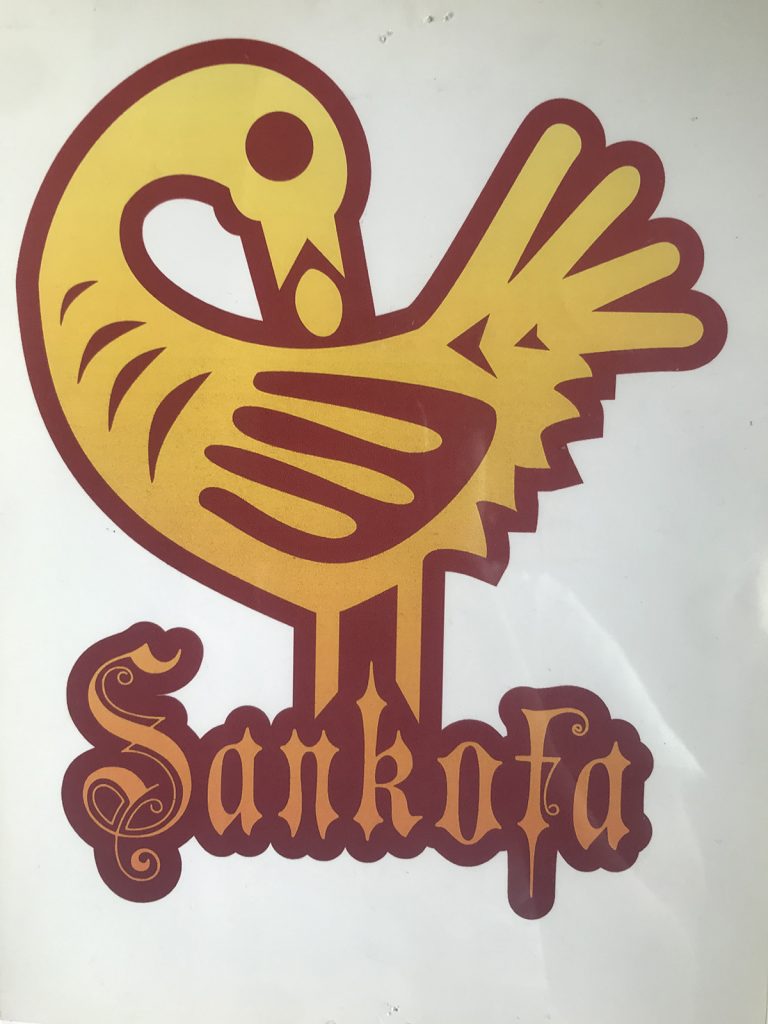
Hills has always been interested in the suffering of marginalized groups and the backstories that led to that suffering, and has written on both at length in Alexander’s course, Prison and the Literary Imagination, Alexander said.
“Curtis has a deep and abiding sensitivity to the ways that poverty is not random – it’s connected to a lot of other social issues,” he said. “His commitment to empathetically engaging with the suffering of marginalized groups showed up with notable compassion in his writing in my course.”
Hills continues to organize in the Oxford and Ole Miss community and returns home to Holmes County – the county with the lowest per-capita income in the state – every chance he gets to work with Reddy and organizers at the Nollie Jenkins Family Center. He has been a part of furthering conversations around equity and equality amongst minority groups on campus, and he even plans to spend the summer before leaving for the Emerson National Hunger Fellowship organizing new programs in his home community.
After the fellowship, Hills plans to attend law school and eventually continue serving his community as an attorney.
“While he’s on track to be this wonderful attorney one day, he’s very much rooted in the soil of the Howard community,” Reddy said.
By JB Clark/University Marketing & Communications

